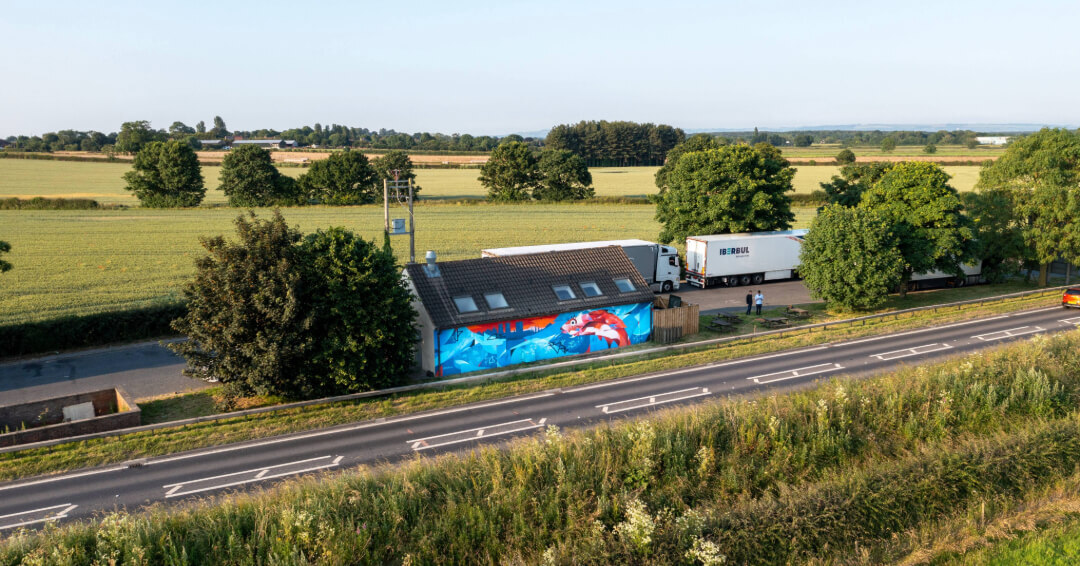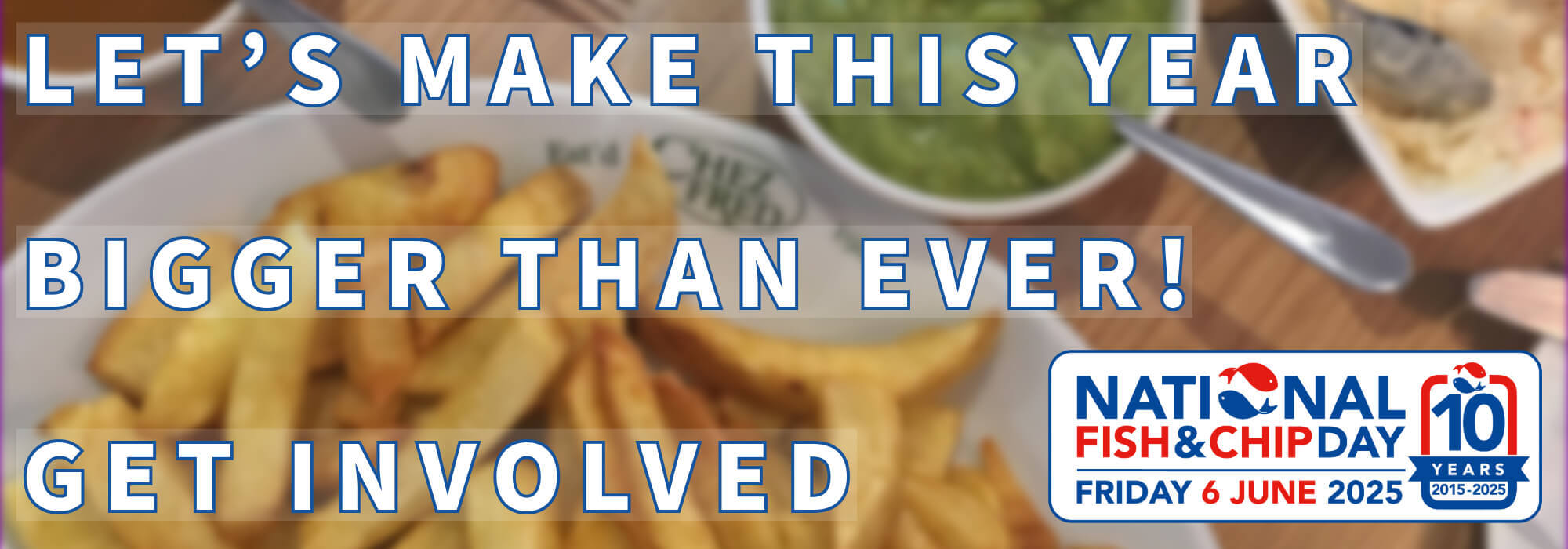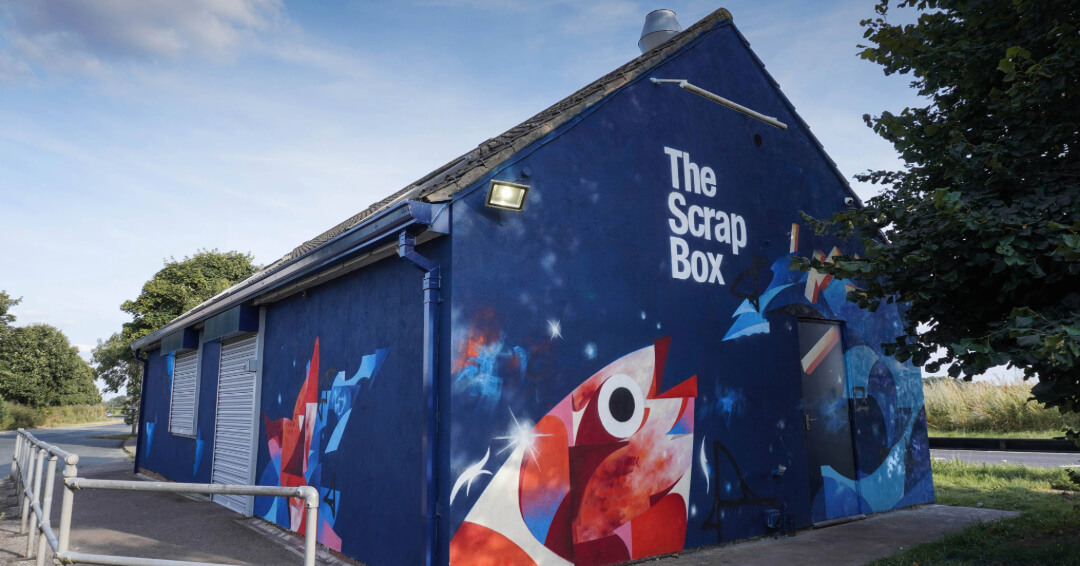Fish, Chips & Me: Reclaiming a Story of Britain
Posted by Aman Dhesi on 11th Apr 2025 Reading Time:
Welcome to this edition of Trade Talks, where we bring you insights straight from the friers of the fish and chip industry. In this column, Aman Dhesi, co-owner of The Scrap Box near York, shares his perspective on the trade.
What does it mean to be British?
It's a question I've wrestled with for a long time - especially from behind the fryer of a fish and chip shop I run with my brother. For many, fish and chips is a symbol of Britain: nostalgic, comforting, proudly national. But like all symbols, the truth behind them is more complicated - and for me, that's where the pride comes from.
Lately, I've found myself revisiting this question more intentionally. A few books on the working-class roots of hospitality in the UK sparked something unexpected. They made me feel seen. These stories - of immigrants, labourers, fighters and strugglers - are the stories I come
from. They've shown me that the national dish I serve every day isn't just fish and chips. It's history, migration, class struggle, and survival all wrapped in a box. And that dish? It's also me.
Stories Make Us
We become the stories we tell ourselves. And for a long time, the story I told myself was shaped by the judgments around me: that this industry wasn't "proper work," that my role was something to grow out of, not embrace. My dad, who changed his name to avoid the racism of the 1980s, used to say he didn't want his kids ending up in the shop. I get why. But here I am - behind the counter, in full view - and for the first time, I'm proud to be exactly here.
The industry has long been a landing place for new arrivals, from Italian migrants in Scotland to Chinese, Turkish and Cypriot takeaway owners and South Asian families like mine. The narrative, however, often skips the complexity. It's not just about hard-working migrants "making it. "It's about class and race and how certain jobs - like ours - get cast as either "too foreign" or "not good enough."
Fish & Chips Is Complicated. So Am I.
This dish we call British was never truly British in the way people imagine. It's the product of migration, trade, empire, working-class graft, and reinvention. Sephardic Jews brought the fried fish, Belgians the chips, Norwegians now bring the cod, and British workers the sweat. That complexity isn't something to shy away from - it's something for me to embrace.
I've struggled in the past with the image of the dish being co-opted by nationalism, by the flag-waving crowd who want fish and chips to mean one kind of Britain - white, monocultural, conservative. But my Britain and its story are different. It includes the mill workers in Bradford, the Italians of the Highlands, the Chinese families in takeaways, and the countless people who have kept the fryer going through war, recessions and pandemics.
Our working-class roots are what bind everyone in the industry - from the sneering at chippies in the early 20th century to the lingering idea that fish and chips is something to aspire out of, asthe journalist A.A. Gill once put it. Most hard-working Brits have far more in common than some of the stories would have us believe.
When Nigel Farage proudly eats "my" dish, I want him to know - this dish is mine too. And my version tells a different story.
The Italians of Scotland & Churchill's Contradictions
One of the stories that stayed with me came from Daniel Gray's Food of the Cods, which traces the journey of fish and chips across Britain. He tells the tale of Italian immigrants who moved to Scotland in the early 20th century, many of whom set up cafes and chip shops.They were often seen as outsiders - especially during the Second World War, when Mussolini's alliance with Hitler made British-Italian families targets.
Despite decades of contribution, Italian shopkeepers faced internment, abuse, and even mob violence. Yet their businesses endured, and in time became part of the fabric of Scottish working-class life. Today, names like Valvona and Crolla or Valerio are rightly celebrated. But the legacy of suspicion and ignorance lingers. You only have to look at what happened to Chinese takeaways vandalised at the start of the Covid pandemic.
Then there's Churchill. We love quoting his praise of fish and chips as a "good companion in times of trouble.
"It's an image we cling to: the great wartime leader eating a bag of chips during the Blitz, standing shoulder to shoulder with the common man. But this same Churchill also spoke disparagingly of the very migrants who helped make the dish what it is. He had no love for "foreign cafes" in British towns. He saw them as a threat to national character.
That contradiction says it all. We're proud of the symbol but uneasy about the people who created it. That tension still exists for many - implicitly being told that they are inauthentically producing the great British dish.
The Fight for Pride
There's a strange feeling that comes with being "allowed" to succeed but not to take pride in it.
I've felt it keenly. As a British-born Punjabi Sikh, educated, and relatively privileged, there's a voice inside and out that says I should be doing "better." That frying chips isn't progress. But why not? Who decides what progress looks like?
My brother now lives in one of the villages we serve. His two young kids will grow up proud their dad makes the best fish and chips around. They won't be told they have to do something "better." They'll know excellence comes in many forms. That this too can be a legacy.
There's power in choosing to stay - in not aspiring "out of" a working-class background, but building something meaningful within it. And there's pride in rewriting the narrative from the inside out.
Owning the Complexity
National Fish and Chip Day is around the corner. It's usually celebrated with nostalgia and flag-waving.. But this year, I'm embracing a different kind of patriotism. One that acknowledges contradiction. One that doesn't shy away from Churchill's complicated legacy, or the fact that some of the most "British" foods and industries are steeped in migration and multiculturalism.
This isn't a tidy narrative. But that's the point. Being on the fence about identity - about class, race, culture - has long felt like a privilege I could enjoy quietly because of the progress that has been made. But in today's world, I don't want to stay quiet anymore. I want to offer an alternative to the loud, reductive voices telling us what Britishness should be. I want to own the full story of fish and chips - good and bad - and claim my place in it.
Because we're all here: the third-generation chip shop owner, the Cypriot frier, the Nordic cod, the Yorkshire-born lad of Punjabi heritage. We are Britain. And we are fish and chips.
Fish, Chips & Me
When I reflect on all this - the Italians, Churchill, the regular who carries on talking to me about United's position in the league mistaking me for my brother Gavin - it doesn't make me feel angry. It makes me feel something deeper. A weird, complicated pride. A pride that's only possible when you stop ignoring the contradictions and start owning them.
So this is me: a third-generation British Asian, a proud frier, an award-winning chip shop owner, and someone who believes that the messiness of our national dish is what makes it beautiful.
I'm raising the frying basket and the flag - my way.
On Good Friday, as I stand behind the counter with my name tag, serving up haddock and chips to a queue out the door, I'll be doing it with pride. Because this isn't just a job. It's a story. And it's mine.
Did you enjoy this Trade Talks column? Have industry insights or thoughts to share? We'd love to hear from you! Drop us a line at info@worldofceres.com.








